Ab-Glymprd 1 Tablet 10's
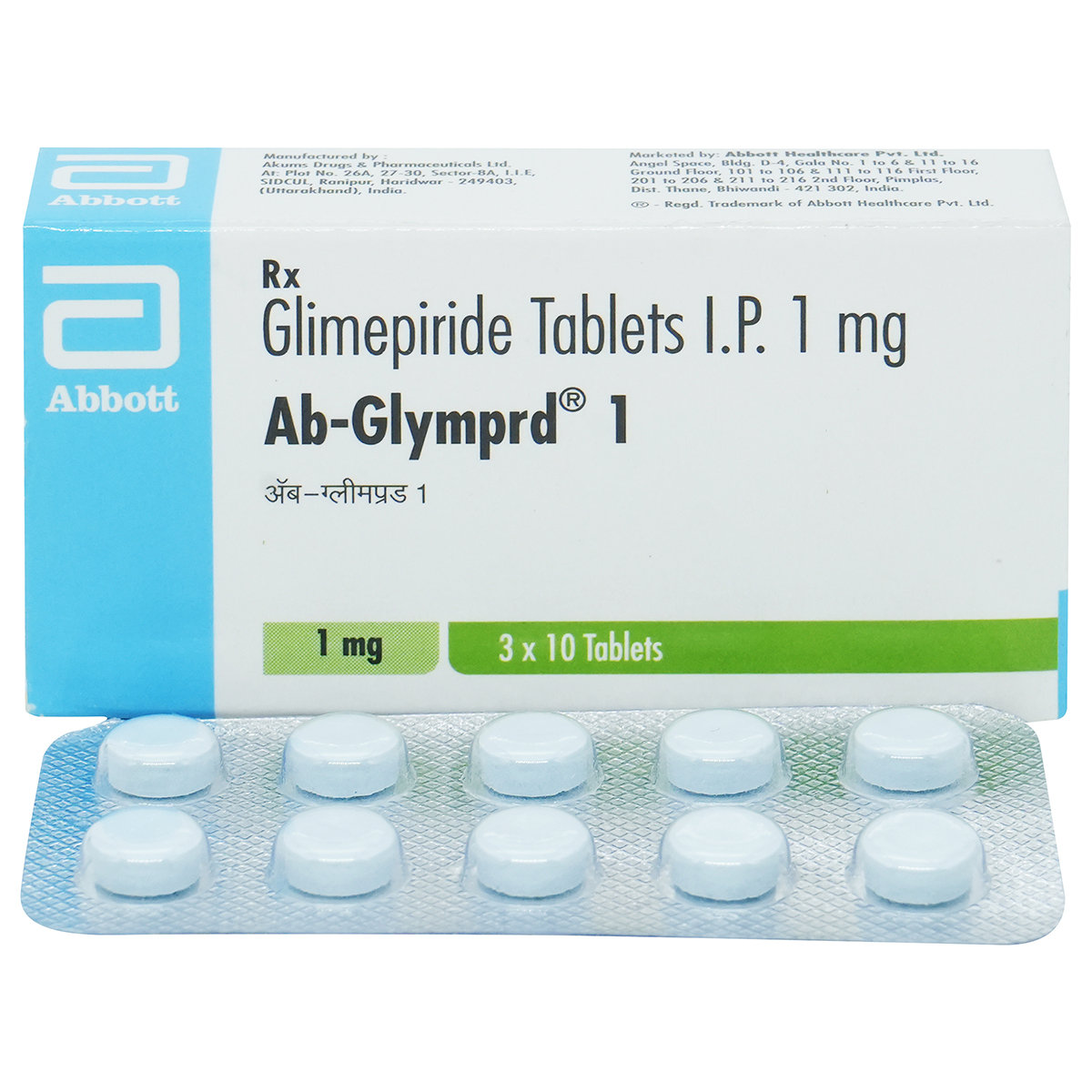
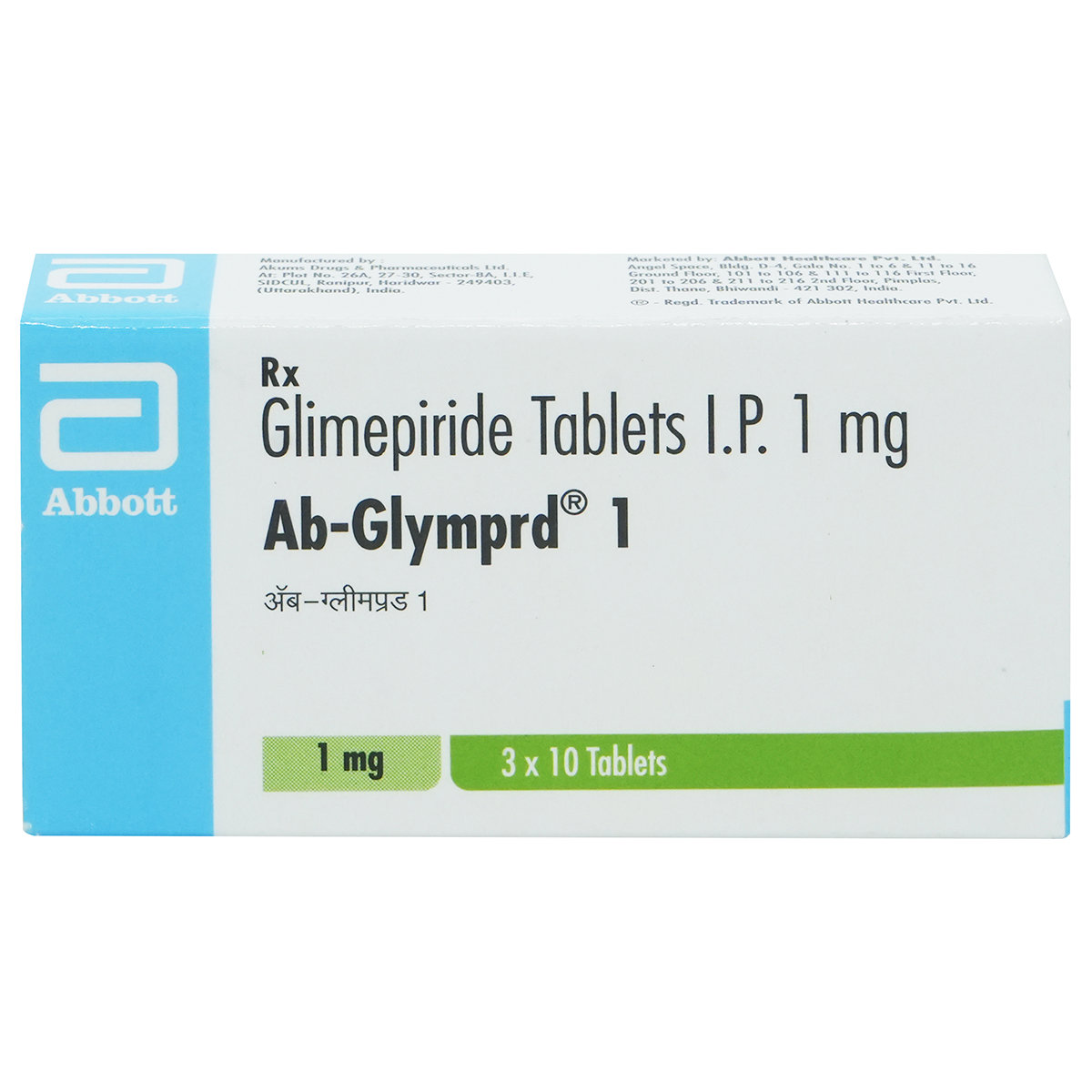
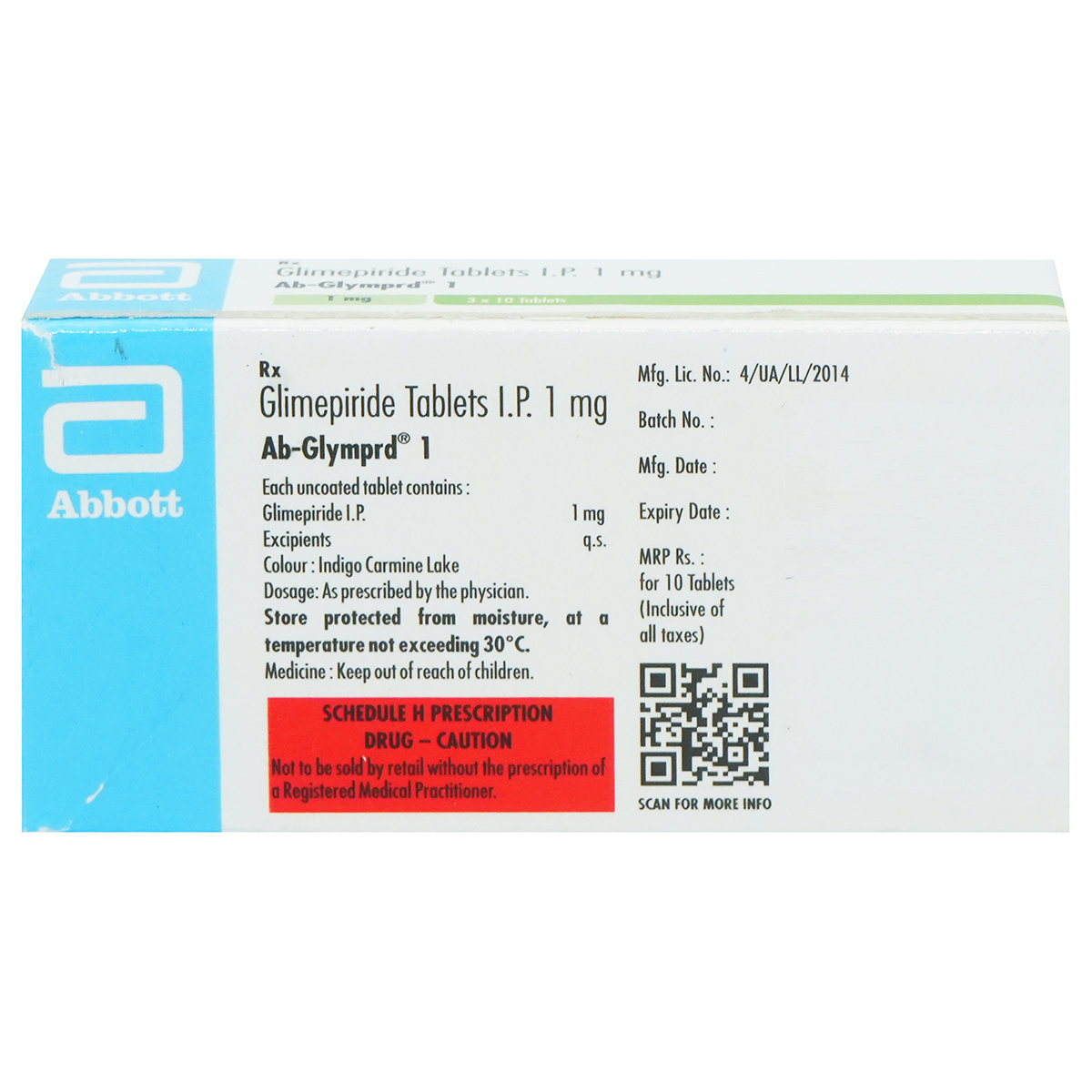
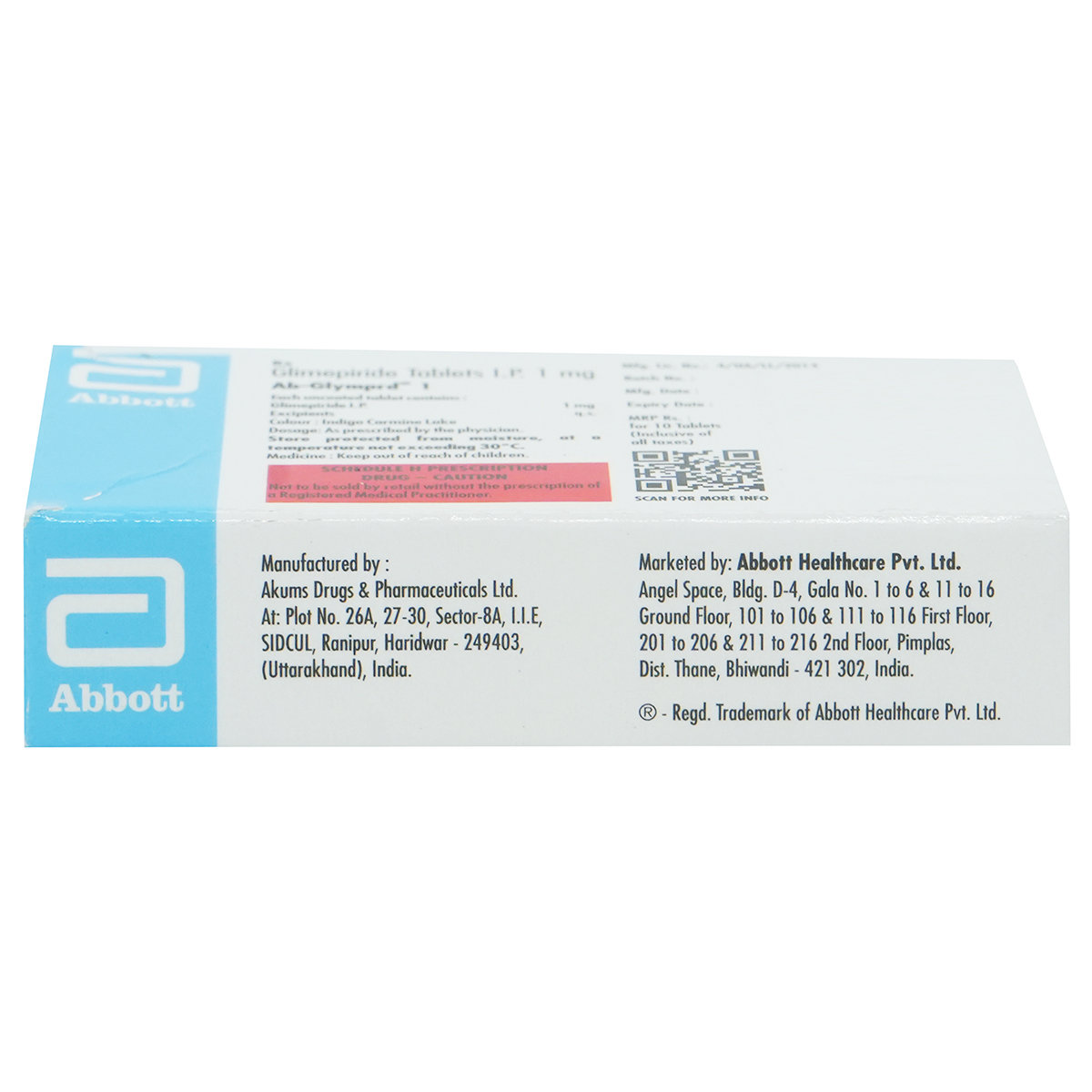
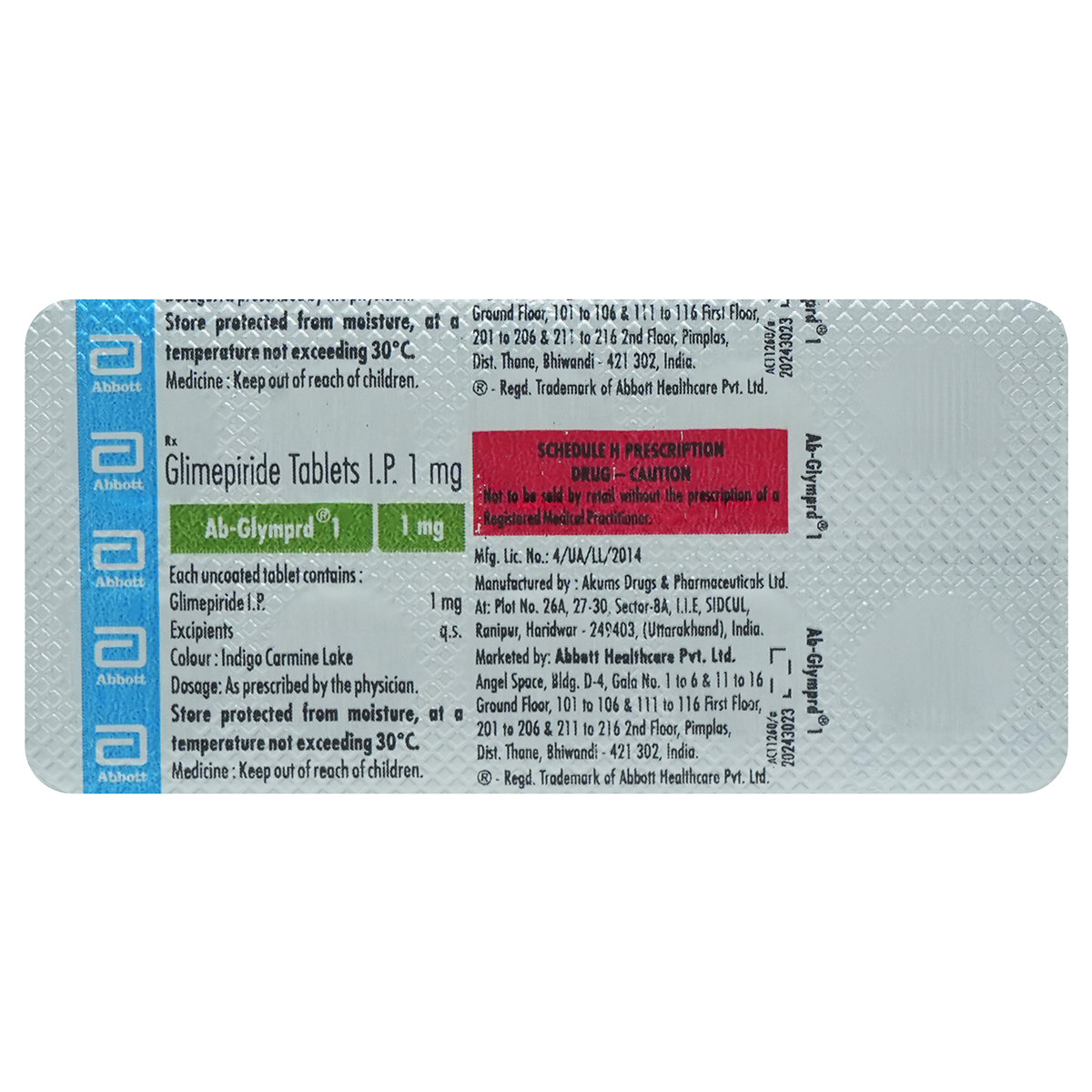
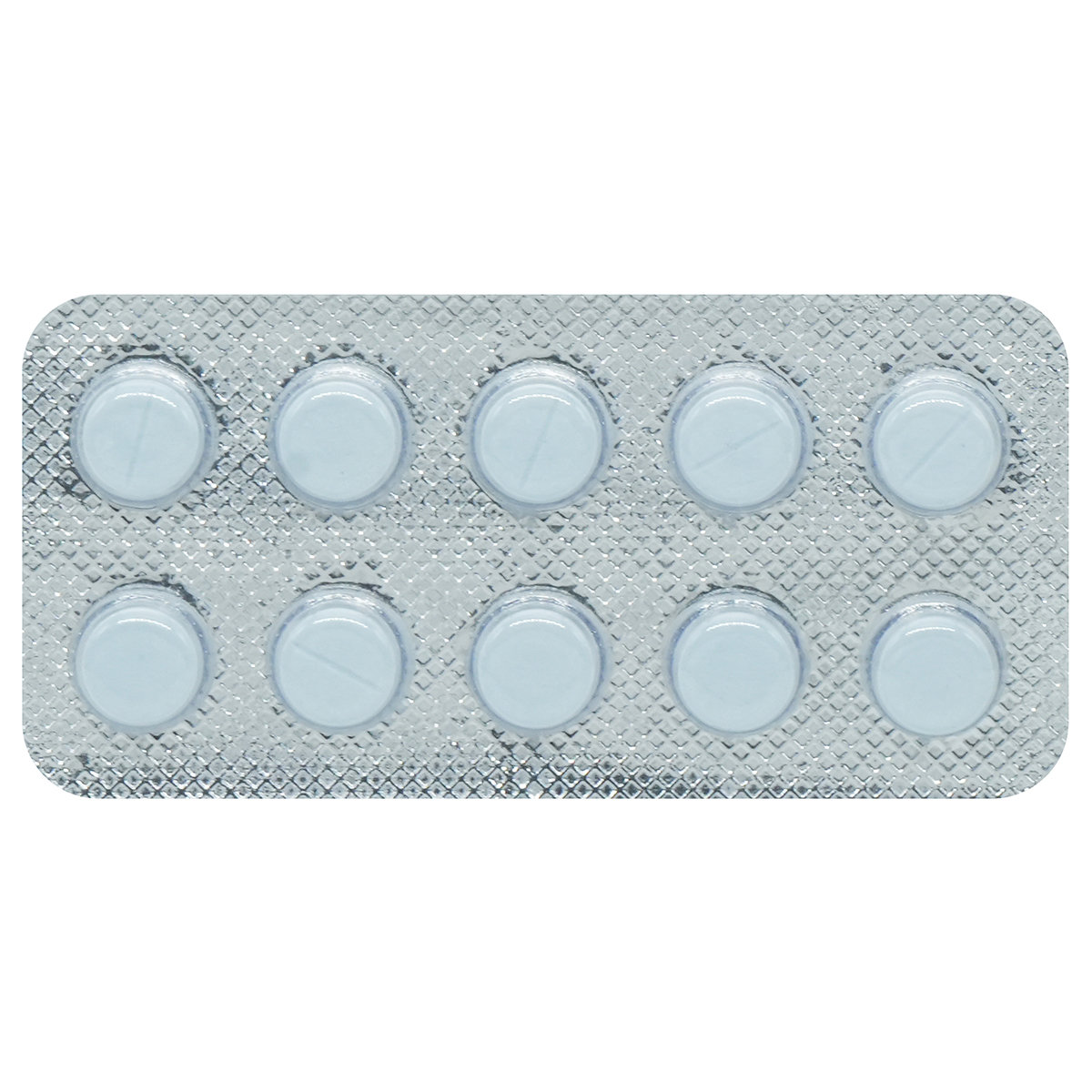
₹27
MRP ₹38.530% off
(Inclusive of all Taxes)
Get Free delivery (₹99)
Know Your Delivery Time
Provide Delivery Location

Secure Payment

India's Most Trusted Pharmacy

Genuine Products

Have a query?
- If you experience low blood sugar levels, inform your doctor. They will assess the severity and make recommendations for the next actions.
- Your doctor will assess your symptoms, blood sugar levels, and overall health before recommending the best course of action, which may include treatment, lifestyle modifications, or prescription adjustments.
- Follow your doctor's instructions carefully to manage the episode and adjust your treatment plan.
- Make medication adjustments as recommended by your doctor to prevent future episodes.
- Implement diet and lifestyle modifications as your doctor advises to manage low blood sugar levels.
- Monitor your blood sugar levels closely for patterns and changes.
- Track your progress by recording your blood sugar levels, food intake, and physical activity.
- Seek further guidance from your doctor if symptoms persist or worsen so that your treatment plan can be revised.
- Get plenty of rest and sleep.
- Keep your body warm.
- Drink plenty of fluids to stay hydrated.
- Avoid strenuous activities.
- Maintain good hygiene to prevent flu from spreading.
- Hydrate your body: Drink enough water to prevent dehydration and headaches.
- Calm Your Mind: Deep breathing and meditation can help you relax and relieve stress.
- Rest and Recharge: Sleep for 7-8 hours to reduce headache triggers.
- Take rest: lie down in a quiet, dark environment.
- Cold or warm compresses can help reduce tension.
- Stay Upright: Maintain good posture to keep symptoms from getting worse.
- To treat headaches naturally, try acupuncture or massage therapy.
- Over-the-counter pain relievers include acetaminophen and ibuprofen.
- Prescription Assistance: Speak with your doctor about more substantial drug alternatives.
- Severe Headaches: Seek emergency medical assistance for sudden, severe headaches.
- Frequent Headaches: If you get reoccurring headaches, consult your doctor.
- Headaches with Symptoms: Seek medical attention if your headaches include fever, disorientation, or weakness.
- Inform your doctor about dizziness symptoms. They may adjust your medication regimen or prescribe additional medications to manage symptoms.
- Follow your doctor's instructions for taking medication, and take it at the same time every day to minimize dizziness.
- When standing up, do so slowly and carefully to avoid sudden dizziness.
- Avoid making sudden movements, such as turning or bending quickly, which can exacerbate dizziness.
- Drink plenty of water throughout the day to stay hydrated and help alleviate dizziness symptoms.
- If you're feeling dizzy, sit or lie down and rest until the dizziness passes.
- Track when dizziness occurs and any factors that may trigger it, and share this information with your doctor to help manage symptoms.
Drug-Drug Interactions
Drug-Drug Interactions
Login/Sign Up
Co-administration of Ofloxacin and Ab-Glymprd 1 Tablet can sometimes have an effect on blood glucose levels.
How to manage the interaction:
Although combining Ofloxacin and Ab-Glymprd 1 Tablet can lead to an interaction, they can be taken on a doctor's advice. If you experience any symptoms of hypoglycemia (headache, dizziness, sleepiness, nervousness, confusion, shaking, nausea, hunger, weakness, sweat, palpitation, and rapid heartbeat) or hyperglycemia (increased thirst, hunger, and urination), consult a doctor. Keep an eye on your blood glucose level. Do not discontinue any medications without consulting a doctor.
Taking Clarithromycin with Ab-Glymprd 1 Tablet may increase the effects of Ab-Glymprd 1 Tablet on lowering blood sugar.
How to manage the interaction:
Although there is a possible interaction, Clarithromycin can be taken with Ab-Glymprd 1 Tablet if prescribed by the doctor. Consult the prescriber if you experience symptoms of low blood sugar such as headache, hunger, weakness, dizziness, drowsiness, nervousness, sweating, confusion, and tremor. Do not discontinue the medications without consulting a doctor.
Taking Ketoprofen with Ab-Glymprd 1 Tablet may increase the risk of hypoglycemia (low blood sugar).
How to manage the interaction:
Although there is a possible interaction, Ab-Glymprd 1 Tablet can be taken with Ketoprofen if prescribed by the doctor. Consult the prescriber if you experience symptoms of low blood sugar such as headache, dizziness, drowsiness, nervousness, confusion, tremor, nausea, hunger, weakness, perspiration, palpitation, and rapid heartbeat. Do not taking the medications without consulting a doctor.
When Ab-Glymprd 1 Tablet is taken with Nalidixic acid, can sometimes affect blood glucose levels. Both hyperglycemia (high blood glucose) and, less frequently, hypoglycemia (low blood glucose) have been reported.
How to manage the interaction:
There may be a possibility of interaction between Ab-Glymprd 1 Tablet and Nalidixic acid, but it can be taken if prescribed by a doctor. It's important to monitor your blood sugar levels closely. If you experience symptoms like kidney problems, low or high blood sugar, or other concerning symptoms, contact a doctor right away. They may be able to suggest alternative medications that won't interact with a diabetes treatment. Do not discontinue any medications without consulting a doctor.
Taking Ab-Glymprd 1 Tablet with Vilazodone may increase the risk of low blood sugar.
How to manage the interaction:
Although there is a possible interaction, Ab-Glymprd 1 Tablet can be taken with Vilazodone if prescribed by the doctor. Consult the prescriber if you experience symptoms of low blood sugar such as headache, dizziness, drowsiness, nervousness, confusion, tremor, nausea, hunger, weakness, perspiration, palpitation, and rapid heartbeat. Do not discontinue the medications without consulting a doctor.
Taking Ab-Glymprd 1 Tablet with Sulfadiazine may increase the risk of low blood sugar.
How to manage the interaction:
Although there is a possible interaction, Ab-Glymprd 1 Tablet can be taken with sulfadiazine if prescribed by the doctor. Consult the prescriber if you experience symptoms of low blood sugar such as headache, dizziness, drowsiness, nervousness, confusion, tremor, nausea, hunger, weakness, perspiration, palpitation, and rapid heartbeat. Do not discontinue the medications without consulting a doctor. Do not discontinue the medications without consulting a doctor.
Taking indomethacin with Ab-Glymprd 1 Tablet may increase the risk of low blood sugar.
How to manage the interaction:
Although there is a possible interaction, Ab-Glymprd 1 Tablet can be taken with indomethacin if prescribed by the doctor. Consult the doctor if you experience symptoms of low blood sugar such as headache, dizziness, drowsiness, nervousness, confusion, tremor, nausea, hunger, weakness, perspiration, palpitation, and rapid heartbeat.
Taking Ab-Glymprd 1 Tablet with Gatifloxacin may affect blood glucose levels. Both low blood glucose and, less frequently, high blood glucose have been reported.
How to manage the interaction:
Gatifloxacin is not recommended for patients with diabetes, however, it can be taken if advised by a doctor. Consult the prescriber if you experience symptoms such as nervousness, confusion, headache, dizziness, drowsiness, tremors, nausea, hunger, weakness, perspiration, palpitation, rapid heartbeat, increased urination, increased thirst, and increased hunger. Maintaining blood glucose levels is advised. Do not discontinue the medications without consulting a doctor.
Aminolevulinic acid sensitizes your skin to bright lights and combining it with other medications that can also have this effect (i.e., photosensitivity) such as Ab-Glymprd 1 Tablet may increase the risk of a severe sunburn.
How to manage the interaction:
Taking Ab-Glymprd 1 Tablet with Aminolevulinic acid together can possibly result in an interaction, but it can be taken if a doctor has advised it. If you notice that your skin is very sensitive to sunlight or if you have a really bad sunburn, it's important to contact a doctor right away. Do not stop using any medications without talking to a doctor.
Co-administration of Amprenavir and Ab-Glymprd 1 Tablet may interfere with blood glucose control and reduce the effectiveness of Ab-Glymprd 1 Tablet.
How to manage the interaction:
Although taking Ab-Glymprd 1 Tablet and Amprenavir together can evidently cause an interaction, it can be taken if a doctor has suggested it. If you notice any of these signs - really high or low blood sugar levels - make sure to contact a doctor right away. Do not stop using any medications without a doctor's advice.
Drug-Food Interactions
Drug-Food Interactions
Login/Sign Up
FAQs
Disclaimer
Author Details
We provide you with authentic, trustworthy and relevant information
Buy best Diabetics products by
Torrent Pharmaceuticals Ltd
Intas Pharmaceuticals Ltd
Eris Life Sciences Ltd
Sun Pharmaceutical Industries Ltd
Lupin Ltd
Micro Labs Ltd
Mankind Pharma Pvt Ltd
Cipla Ltd
Lloyd Healthcare Pvt Ltd
Macleods Pharmaceuticals Ltd
Abbott India Ltd
Alkem Laboratories Ltd
Primus Remedies Pvt Ltd
Glenmark Pharmaceuticals Ltd
Aristo Pharmaceuticals Pvt Ltd
Dr Reddy's Laboratories Ltd
Wockhardt Ltd
USV Pvt Ltd
La Renon Healthcare Pvt Ltd
Emcure Pharmaceuticals Ltd
Ajanta Pharma Ltd
Ipca Laboratories Ltd
Alembic Pharmaceuticals Ltd
Fusion Health Care Pvt Ltd
Corona Remedies Pvt Ltd
Hbc Life Sciences Pvt Ltd
East West Pharma India Pvt Ltd
Eswar Therapeutics Pvt Ltd
Elbrit Life Sciences Pvt Ltd
Alteus Biogenics Pvt Ltd
Medley Pharmaceuticals Ltd
Zydus Healthcare Ltd
Ranmarc Labs
Sinsan Pharmaceuticals Pvt Ltd
Mitoch Pharma Pvt Ltd
Msn Laboratories Pvt Ltd
Akumentis Healthcare Ltd
Arkas Pharma Pvt Ltd
Unison Pharmaceuticals Pvt Ltd
Acmedix Pharma Llp
Sanofi India Ltd
Novo Nordisk India Pvt Ltd
Tas Med India Pvt Ltd
Leeford Healthcare Ltd
Q Check Pharmaceuticals
Blue Cross Laboratories Pvt Ltd
Xemex Life Sciences
Anthem Bio Pharma
Sydmen Life Sciences Pvt Ltd
Aareen Healthcare Pvt Ltd
Diacardus Pharmacy Pvt Ltd
Jubilant Lifesciences Ltd
Neucure Lifesciences Pvt Ltd
Nirvana India Pvt Ltd
Stature Life Sciences Pvt Ltd
Systopic Laboratories Pvt Ltd
Talent India Pvt Ltd
Alvio Pharmaceuticals Pvt Ltd
Panacea Biotec Ltd
Shrrishti Health Care Products Pvt Ltd
Spectra Therapeutics Pvt Ltd
Edoc Life Sciences Pvt Ltd
Franco Indian Pharmaceuticals Pvt Ltd
Akesiss Pharma Pvt Ltd
Elinor Pharmaceuticals (P) Ltd
Hicxica Formulations Pvt Ltd
Indoco Remedies Ltd
Saan Labs
Zydus Cadila
Biocon Ltd
Eli Lilly and Company (India) Pvt Ltd
Remedy Life Sciences Pvt Ltd
Verse Lifesciences
Capital Pharma
Koye Pharmaceuticals Pvt Ltd
Sanz Pharmaceuticals
Lippon Pharma Pvt Ltd
MEDICAMEN BIOTECH LTD
Morepen Laboratories Ltd
Atos Lifesciences Pvt Ltd
Azkka Pharmaceuticals Pvt Ltd
Converge Biotech Pvt Ltd
Erinyle Health Care Pvt Ltd
MERAKI HEALTH
FDC Ltd
Jarun Pharmaceuticals Pvt Ltd
Knoll Healthcare Pvt Ltd
Opsis Care Lifesciences Pvt Ltd
Vasu Organics Pvt Ltd
Daylon healthcare pvt Ltd
Elder Pharmaceuticals Ltd
Orris Pharmaceuticals
Cadomed Pharmaceuticals India Pvt Ltd
Erinyle Pharma
Medicure Life Sciences Pvt Ltd
N Line Healthcare Pvt Ltd
Olcare Laboratories Pvt Ltd
RPG Life Sciences Ltd
Wallace Pharmaceuticals Pvt Ltd
Zuventus Healthcare Ltd









